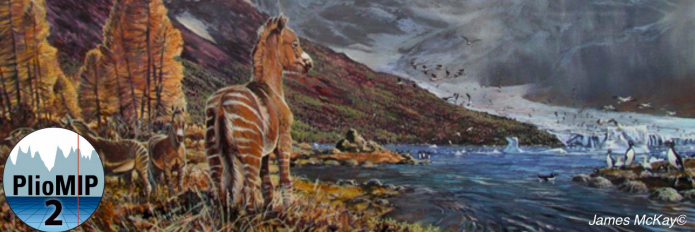|
After a couple of week of on boarding admin and finishing off a big manuscript that has been in the pipeline some 30 years (I'll post a bit on that project soon!), this week is all about getting to know my new team, both at Leeds and in PlioMIP (Pliocene Modelling Intercomparison Project). This afternoon is the first of two I will have the pleasure of spending getting to know about the other work of ERCs in the PlioMIP. There are some familiar names, with Ran Feng presenting on past terrestrial hydroclimate driven by Earth System Feedbacks and Dan Lunt talking about GMST and polar amplification in the PlioMIP ensemble - results from IPCC, and some new colleagues such as Julia Tindall, presenting on comparing the PlioMIP2 ensemble to Pliocene proxy data: how good are the models? One of the interesting questions we need to address in proxy-model mismatch for Arctic amplification of temperature is how to tell if our proxies are bias or if our models are missing or mischaracterising processes in the climate. In palaeoclimate, best practice is to apply multiple proxies, each with different underlying basis for the relationship to the climate variable of interest, e.g. delta18O of tooth enamel and leaf physiognomy at the same locality to estimate mean annual temperatures. In general, if these agree, and don't contravene the Whitlock Principal of Least Astonishment, we have good confidence in our estimates. And yet all the training data for all our models is based on the modern world - what if our bias comes from the current climate space for which the Pliocene (and future) is not analogous, could this lead to all proxy-schemes being bias in the same way? If a climate variable currently covaries with the 'important' climate variable that is driving the relationship, but is not itself tightly bound to our proxy, this may be true. A big of all Marie Sklodowska-Curie fellowships is training. For me, that training will be in brushing off and extending my skills in statistical modelling. This will be key to thinking about the mechanics of how our currently proxies work and their potential pitfalls - as well as generating a new proxy for cloud. I am looking forward to getting deep into it in the coming weeks.
0 Comments
|
ProjectClouds cause the greatest uncertainty in climate models, but we currently have no way of testing cloud model performance in a climate with higher CO2 than the historical records. Palaeontology gives us access to such a past, but currently, we don't have a method to reconstruct cloud in deep time. Archives
June 2023
Categories |

 RSS Feed
RSS Feed
